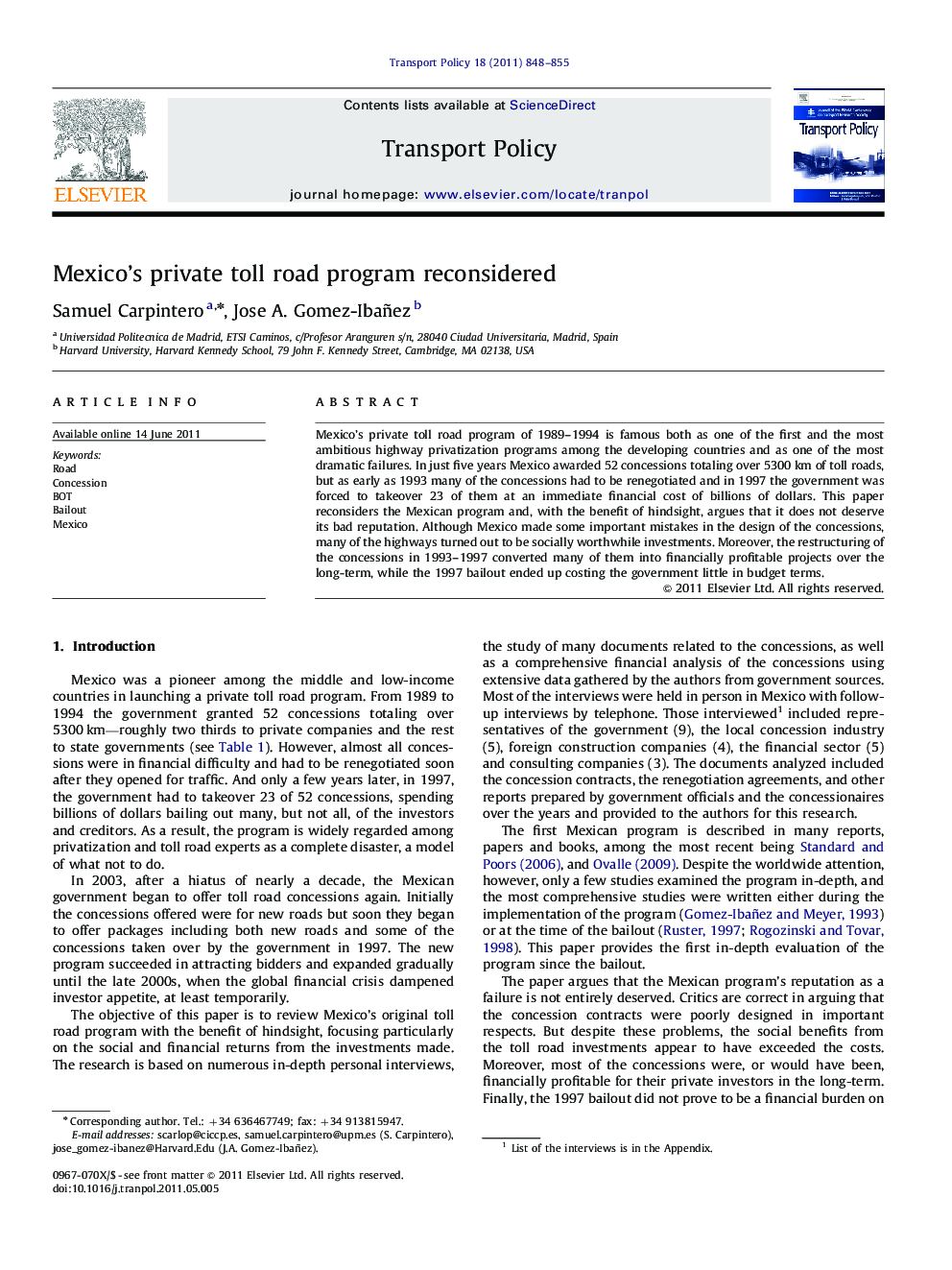| Article ID | Journal | Published Year | Pages | File Type |
|---|---|---|---|---|
| 1065323 | Transport Policy | 2011 | 8 Pages |
Mexico's private toll road program of 1989–1994 is famous both as one of the first and the most ambitious highway privatization programs among the developing countries and as one of the most dramatic failures. In just five years Mexico awarded 52 concessions totaling over 5300 km of toll roads, but as early as 1993 many of the concessions had to be renegotiated and in 1997 the government was forced to takeover 23 of them at an immediate financial cost of billions of dollars. This paper reconsiders the Mexican program and, with the benefit of hindsight, argues that it does not deserve its bad reputation. Although Mexico made some important mistakes in the design of the concessions, many of the highways turned out to be socially worthwhile investments. Moreover, the restructuring of the concessions in 1993–1997 converted many of them into financially profitable projects over the long-term, while the 1997 bailout ended up costing the government little in budget terms.
► Social benefits from the toll road investments have exceeded the cost. ► Most of the concessions were, or would have been, financially profitable. ► Mexican government did not suffer financially from the bailout.
